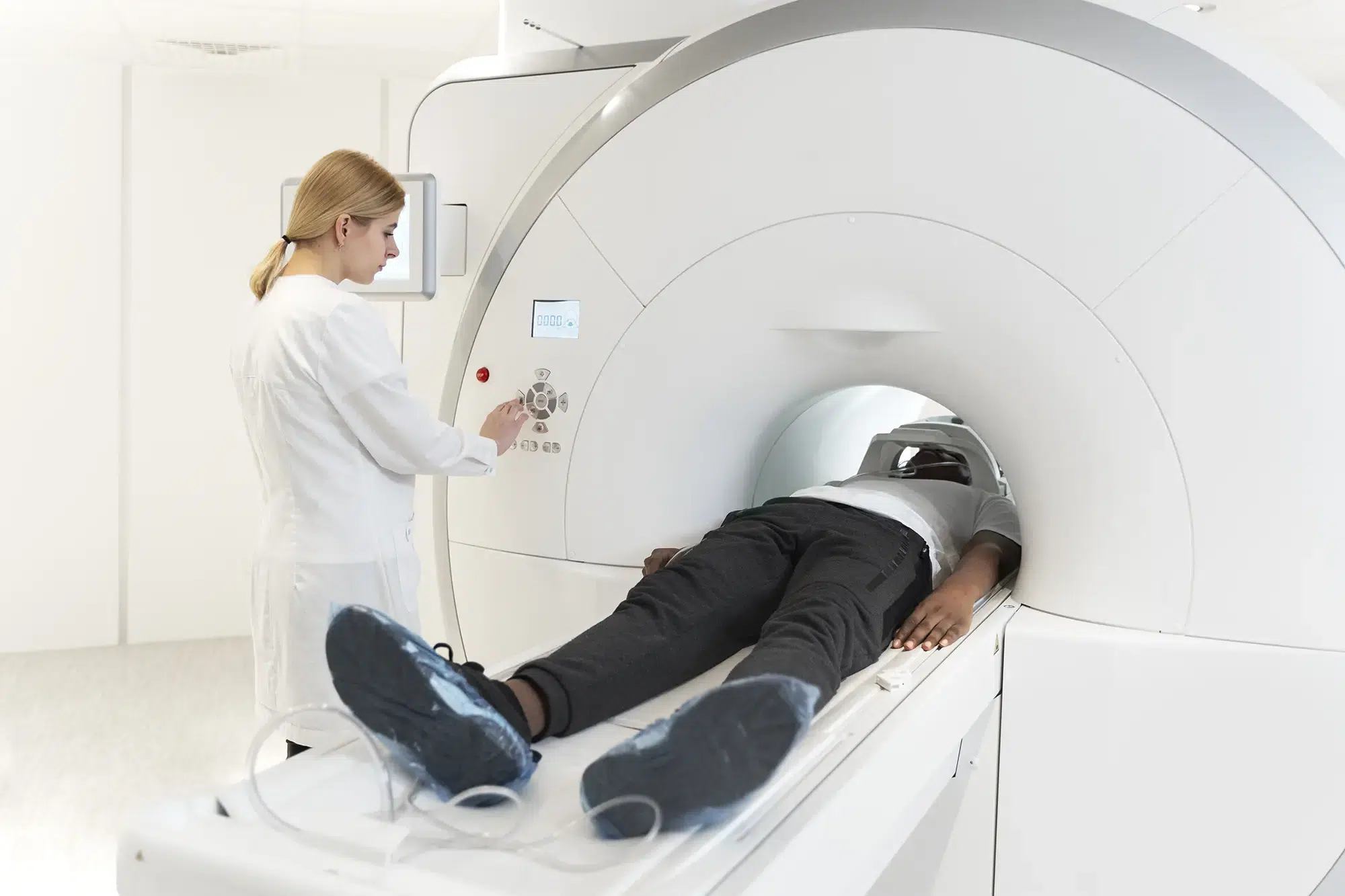Early Cancer Detection: Keys to Saving Lives

Table of Contents
Introduction: The Earlier, the Better
Cancer gives no warning. It can develop silently for years before showing symptoms. That’s why early detection saves lives: because it allows action to be taken before the disease progresses, increasing the chances of cure by up to 90%.
At German Clinic Marbella, we are committed to an active and personalized prevention approach, combining advanced diagnostic testing, medical genetics, and international experience to get ahead of cancer before it becomes visible.
Why is early cancer detection vital?
- 1 in 2 men and 1 in 3 women will develop cancer during their lifetime.
- Cancer detected in its early stages is curable in a high percentage of cases.
- For most of the most common types (breast, colon, prostate, lung), there are effective, safe, and non-invasive screening tests.
Most common cancers and how to detect them
👩 Breast cancer
- From age 50 or 45 if there is a family history
- 3D digital mammography (tomosynthesis)
- Complementary breast ultrasound in cases of dense breasts
- Breast MRI in high-risk patients
👨 Prostate cancer
- From age 50 or 45 if there is a family history
- Total and free PSA analysis
- Urological examination
- Multiparametric prostate MRI if suspected
👨👩👧👦 Colorectal cancer
- From age 45 in men and women
- Fecal occult blood test
- Preventive colonoscopy every 5-10 years
- Virtual colonoscopy in selected cases
🚬 Lung cancer
- In smokers or ex-smokers over 55 years of age
- Annual low-dose radiation CT
- Evaluation of the Risk assessment with blood biomarkers
What does an oncology checkup at German Clinic include?
📋 Personalized risk assessment
- Complete medical history
- Lifestyle and environmental factors
- Genetic load and family history
🧬 Cancer susceptibility genetic panel
- BRCA1/2, p53, APC, MLH1, MSH2, and others
- Ideal for hereditary breast, ovarian, colon, or prostate cancer
- Pre- and post-cancer genetic counseling
🔬 Advanced analytics
- Tumor markers (PSA, CEA, CA125, CA19-9, etc.)
- Complete blood count, ferritin, LDH
- Liver and kidney profile
🖥️ Diagnostic imaging studies
- Mammogram and breast ultrasound
- Chest or abdominal CT scan
- Colonoscopy or virtual colonoscopy
- Specific MRI if required

Real cases that demonstrate its value
👩 Eva, 46 years old, German
Asymptomatic, but a mother and aunt with breast cancer. A BRCA1 mutation was detected at German Clinic. He began an intensive follow-up plan and preventative surgery with excellent results.
👨 Peter, 62 years old, British ex-smoker
He came for a general check-up. The chest CT scan detected an incipient lung nodule. He underwent surgery without the need for chemotherapy. Today he continues to live a full life.
Who is this check-up for?
- People over 45 years old
- Anyone with a family history of cancer
- Ex-smokers or people with occupational exposure to toxic substances
- Women with early periods or late menopause
- Men with PSA abnormalities or urinary symptoms
What sets German Clinic apart?
🧠 Evidence-based approach
We don’t perform generic tests: we select what’s necessary based on each profile, avoiding overdiagnosis and unnecessary testing.
🌍 Multilingual, international treatment
Consultation and reports in Spanish, German, or English, with clear, non-technical explanations.
⚕️ Coordination with specialists
Our checkups are supported by a multidisciplinary team: oncology, internal medicine, gynecology, urology, and medical genetics.
Frequently asked questions
Is the cancer checkup invasive?
Mostly, no. Tests include blood tests, imaging, and noninvasive techniques. The colonoscopy may require light sedation.
How long does it take?
The basic checkup is performed in one morning. If genetic studies or advanced imaging are added, it is scheduled over two days.
How often should I do it?
It depends on individual risk. In general, every 1-2 years for healthy people and more frequently if there is a history.
Conclusion: knowledge is life
Cancer doesn’t have to be a sentence. Detecting it early changes the prognosis radically. At German Clinic Marbella, we offer you the technology, knowledge, and closeness so you can make the right choice.
Because prevention means living longer, and better.

